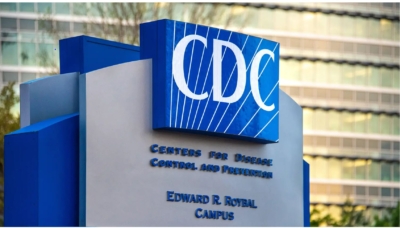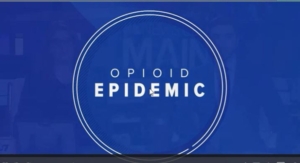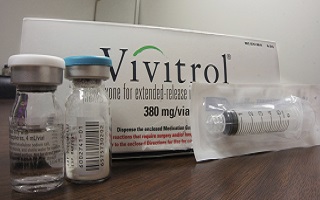Adverse childhood experiences (ACEs) are an established, evidence-based measure of the medical and mental health consequences that can arise from exposure to trauma and stress in childhood.1 The effects of ACEs can be short term or long term and can endure through childhood and into adulthood, with well-documented effects on long- term health, including cognitive, physiological, behavioral, and psychological effects. It is estimated that as many as two-thirds of all children in the United States experience some form of traumatic event by the age of 16–with those experiencing such events by age five comprising a disproportionate share of that group.2
Because of the range of scope of ACEs, and the harmful effects of traumatic exposures on children that can be triggered by subsequent events, first responders who encounter children need to go to great lengths to minimize their exposure to traumatic stress. “Trauma- informed care” (TIC), one approach to addressing such cases, involves several steps, according to the Substance Abuse and Mental Health Services Administration (SAMHSA):3
- Realizing the widespread impact of trauma and understanding potential paths for
- Recognizing the signs and symptoms of
- Fully integrating knowledge about trauma into policies, procedures, and practices.
- Seeking to actively resist re-traumatization.
For first responders, minimizing repeated trauma in children through a trauma-informed approach is critical. Because the overwhelming share of children in the justice system have experienced or have been exposed to trauma,4 preventing children’s exposure to additional traumatic experiences that can have such extreme effects is important. To this end, deflection programs based on the five pathways model5 can make a huge difference, by keeping individuals out of the justice system through early identification and intervention at family and school levels.
The Plymouth County Outreach (PCO) program, a deflection initiative reaching 27 communities in southeastern Massachusetts, followed the SAMHSA steps to address TIC in a process that built on PCO’s existing infrastructure, said former East Bridgewater Police Chief Scott Allen.
“It was simple: [providing] training (on ACEs) and education at first,” he said, then adding extra precautionary steps on calls to households where children were present or might otherwise be exposed to the aftereffects of trauma. Patrol officers across the department—not just those conducting active outreach7— were educated about ACEs, and that training was extended to school administrators, health educators, and ultimately to teachers, Chief Allen added.
The relationships developed through training efforts led to the adoption of formal programs, such as the Handle With Care (HWC) partnership with county schools and the district attorney’s office.8 HWC initiatives are designed for first responders to facilitate early intervention through outreach to school officials. That outreach is targeted at children who have or may have been exposed to trauma and can lead to a host of services, including trauma-based mental health care.
In Plymouth County, all calls involving households where children have been exposed to trauma are shared with school administrators to align that work with behavioral health counselors, regardless of the charge or cause for the call, Chief Allen added. As a result, he noted, “We were able to connect children and families to support services either already in place or that the school was able to add because of the collaboration we’d built” across the community, with a focus on children whose households had repeat calls.
Substance use disorder not only affects individuals but also their families and communities. The opioid crisis, particularly in its effect on children, presents an ongoing challenge that deflection programs have begun to address. Understanding trauma is an important part of responding to calls in a trauma-informed approach.
Taking steps to develop deflection programs that help connect children with treatment and services through prevention and intervention efforts can help interrupt the impacts of trauma and produce positive outcomes for children. Deflection offers first responders a way to implement such programs through partnerships among law enforcement, fire and emergency medical service agencies, treatment and service providers, and schools.
Key Takeaways
- Look for available trainings on trauma and trauma- informed care, such as those found at SAMHSA’s National Center on Substance Abuse and Child Welfare.
- Explore resources on childhood trauma and ACEs, such as those provided by the National Alliance for Drug Endangered Children and other organizations.
- Identify child and family support service providers in your
Endnotes
- Oral, , Ramirez, M., Coohey, C., Nakada, S., Walz, A., Kuntz, A., Benoit, J., & Peek-Asa, C. (2016). Adverse childhood experiences and trauma informed care: the future of health care. Pediatric Research 79, 227–233. https://www.nature.com/articles/pr2015197
- Bartlett, , Wilson, A., Moore, K., & Redd, Z. (2016). Five ways trauma-informed care supports children’s development. Childtrends.org. https://www.childtrends.org/publications/5-ways-trauma- informed-care-supports-childrens-development
- Substance Abuse and Mental Health Services Administration. (2014). SAMHSA’s concept of trauma and guidance for a trauma-informed approach. https://ncsacw.samhsa.gov/userfiles/files/SAMHSA_Trau pdf
- The National Child Traumatic Stress Network. (2021). Justice. https://www.nctsn.org/trauma-informed- care/creating-trauma-informed-systems/justice
- Deflection is a strategy designed to save lives and keep individuals out of the justice system by providing pathways to treatment for those with substance use disorder (SUD) and other conditions. Source: Report of the national survey to assess first responder deflection programs in response to the opioid crisis. (2021). https://www.cossapresources.org/Content/Documents/Ar ticles/CHJ-TASC_Nation_Survey_Report.pdf
- For more information on Plymouth County Outreach, visit its COSSAP First Responder Diversion mentor page at https://www.cossapresources.org/Learning/PeerToPeer/ Diversion/Sites/EastBridgewater.
- In the Active Outreach pathway, a first responder intentionally identifies or seeks out individuals with SUDs to refer them to, or engage them in, treatment; outreach is often done by a team consisting of a clinician and/or a peer with lived experience. Source: Report of the national survey to assess first responder deflection programs in response to the opioid crisis. (2021). https://www.cossapresources.org/Content/Documents/Ar ticles/CHJ-TASC_Nation_Survey_Report.pdf
- The Plymouth County Drug Abuse Task Force. (n.d.). Handle With Care: The drug endangered children’s initiative. https://otf.plymouthda.com/childhood-trauma- initiative/. The Handle With Care model is considered a promising practice by the National Alliance for Drug Endangered More information on Handle With Care can be found on the Handle With Care website, https://handlewithcare.com.








Leave A Comment